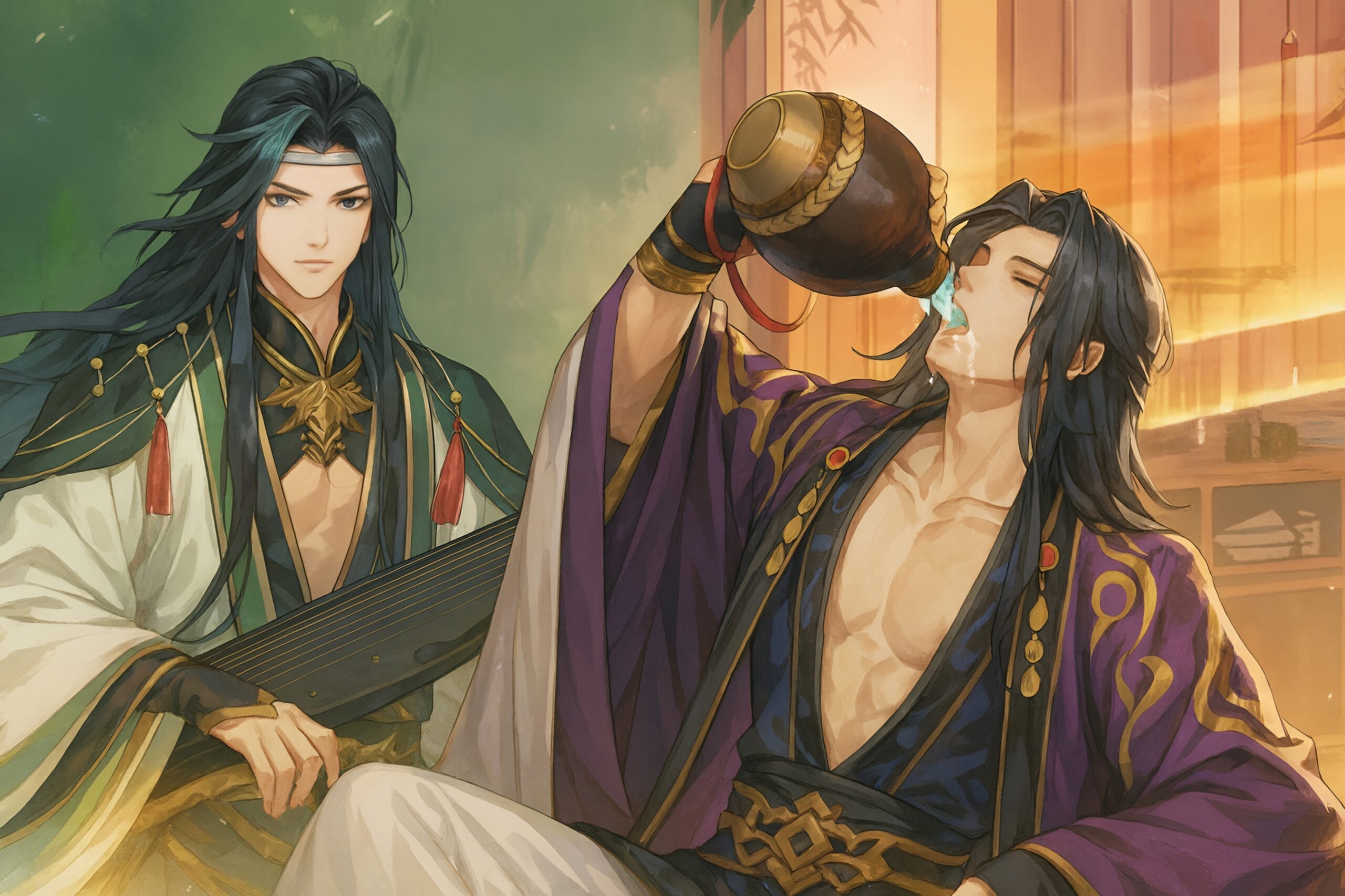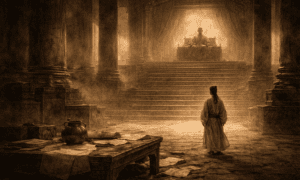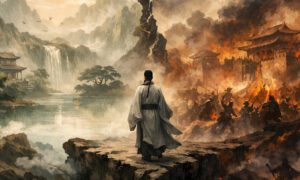In the third century, as China’s Wei–Jin era descended into corruption and uncertainty, two scholars refused to conform. Ruan Ji and Ji Kang, known among the Seven Sages of the Bamboo Grove, retreated from official life into poetry, philosophy and silence. Ruan Ji’s melancholy verse gave voice to the pain of integrity under oppression; Ji Kang’s steadfast defiance led to his execution. Their withdrawal was not an escape but a statement — a belief that when public virtue collapses, conscience must turn inward to survive.
Seventeen centuries later, Jiahao Shen, an independent history researcher and postgraduate student in postgraduate program of World History and Philosophy at King’s College London, finds himself engaged in the same moral dilemma. Shen, who studied History and Asian Studies at James Madison University and completed a Master of Higher Education at the University of Oklahoma, lives and works in Japan. There, and indeed across the developed world, he sees the emergence of a quieter but equally pervasive form of control: not the edict of empire, but the discipline of work.
In his essay “Ruan Ji and Ji Kang — The Painful Mind and the Internalization of the Idealized World,” Shen defines the painful mind as the consciousness that refuses to submit to the illusions of order. For Ruan Ji and Ji Kang, this pain was the cost of moral clarity. For Shen, it describes the experience of the modern individual — acutely aware of contradiction yet unable to escape it. To be conscious today, he suggests, is to suffer the pressure of systems that govern life in the name of efficiency.
Shen’s analysis is less political than philosophical. He argues that the global economy has produced a new metaphysics of conformity. Productivity has replaced meaning as the organising principle of human existence. The system requires not belief but participation: to remain employable, visible and engaged. The result is a world in which individuals appear free but live according to an unspoken logic of self-regulation. The tyranny of the past has been replaced by the civility of exhaustion.
The painful mind, in Shen’s view, is what remains when awareness refuses to collapse into habit. It is the mark of those who continue to think in a world that rewards distraction. This condition is not unique to Japan, or to Asia. It defines much of global modernity, from the corporate hierarchies of Europe and America to the bureaucracies of the state and the algorithmic pace of digital life. Everywhere, the individual faces the same choice that confronted Ruan Ji and Ji Kang: to adapt, or to preserve sincerity.
In response, Shen advocates the cultivation of what he calls the idealised inner world — the inward realm of reflection, integrity and truth that cannot be monetised or managed. Like the Bamboo Grove sages, he does not see inwardness as retreat but as endurance. The protection of interior life, he suggests, is the last form of moral resistance available in a civilisation that measures worth through external performance.
Pain, for Shen, becomes paradoxically redemptive. It is the evidence that one’s conscience remains intact. The painful mind does not numb itself with distraction; it feels and therefore survives. “To be untroubled,” he writes, “is to be already lost.” In this, he restores to discomfort a kind of dignity. Where modern management promises balance, Shen finds meaning in tension — the friction that keeps consciousness alive.
His perspective reflects a generation of thinkers navigating a global economy that values adaptability over authenticity. Shen’s education across continents — in the United States, the United Kingdom and East Asia — has given him a panoramic view of the cultural convergence shaping modern labour. What were once regional habits of overwork and conformity have become the shared grammar of global capitalism. The world is now unified not by belief but by fatigue.
Yet Shen’s writing is not despairing. It offers a tempered optimism: that the mind, if tended, still retains autonomy. The inner world cannot be abolished by productivity metrics or algorithms. It endures wherever thought resists reduction to output. Like Ruan Ji’s quiet lament and Ji Kang’s final composure, Shen’s reflections form a philosophy of persistence — an argument for intellectual and moral life under pressure.
His conclusion is understated but profound. Freedom, he implies, has changed its geography. It no longer resides in the public sphere or in institutions of power, but in the private act of awareness itself. The challenge of modernity is not to overthrow systems, but to remain human within them.
Across centuries, Ruan Ji, Ji Kang and Jiahao Shen share a single conviction: that integrity, though it cannot save the world, can still save the self. And in the quiet endurance of the mind, they find a freedom that no empire — ancient or modern — can command.

































